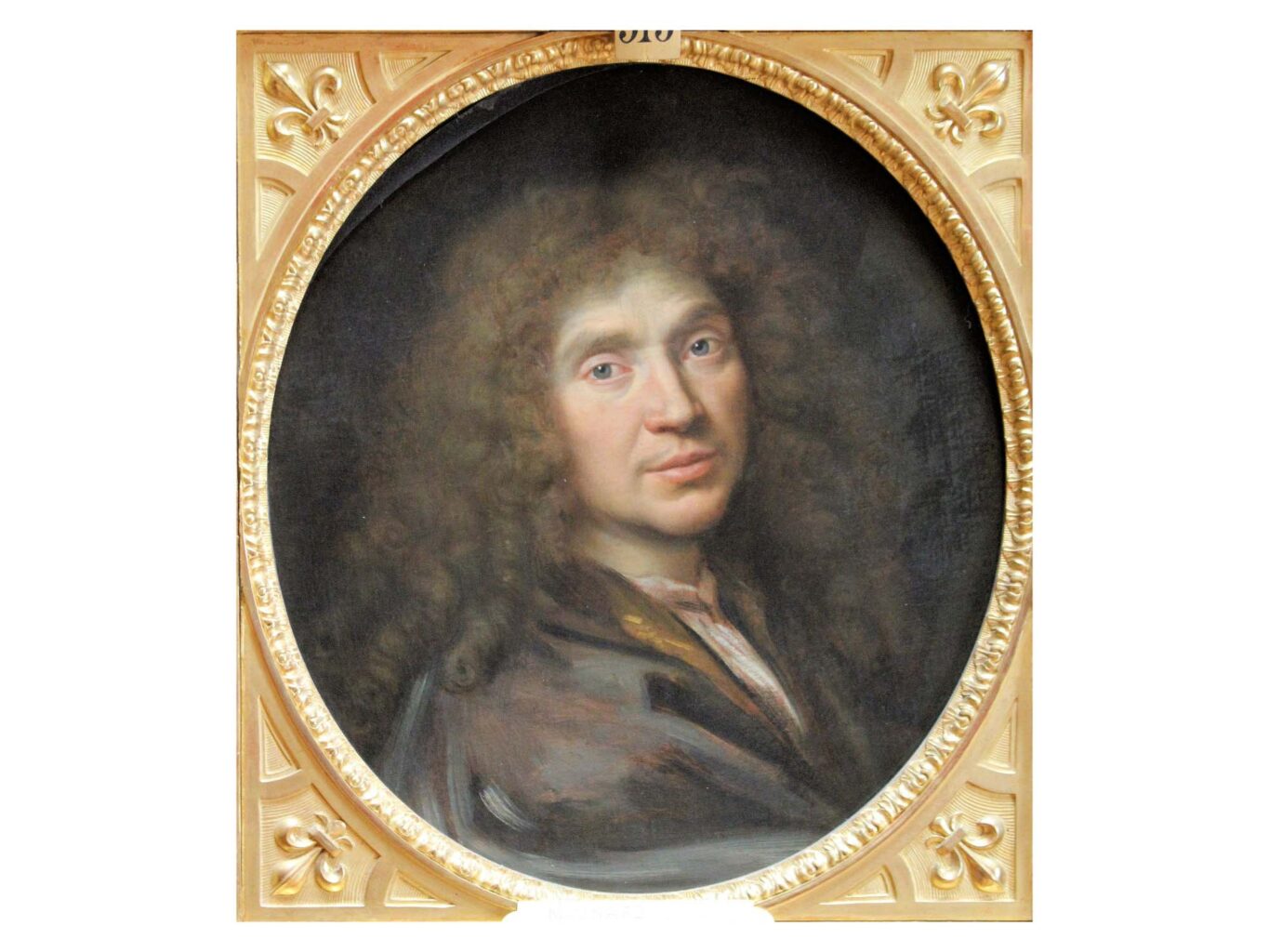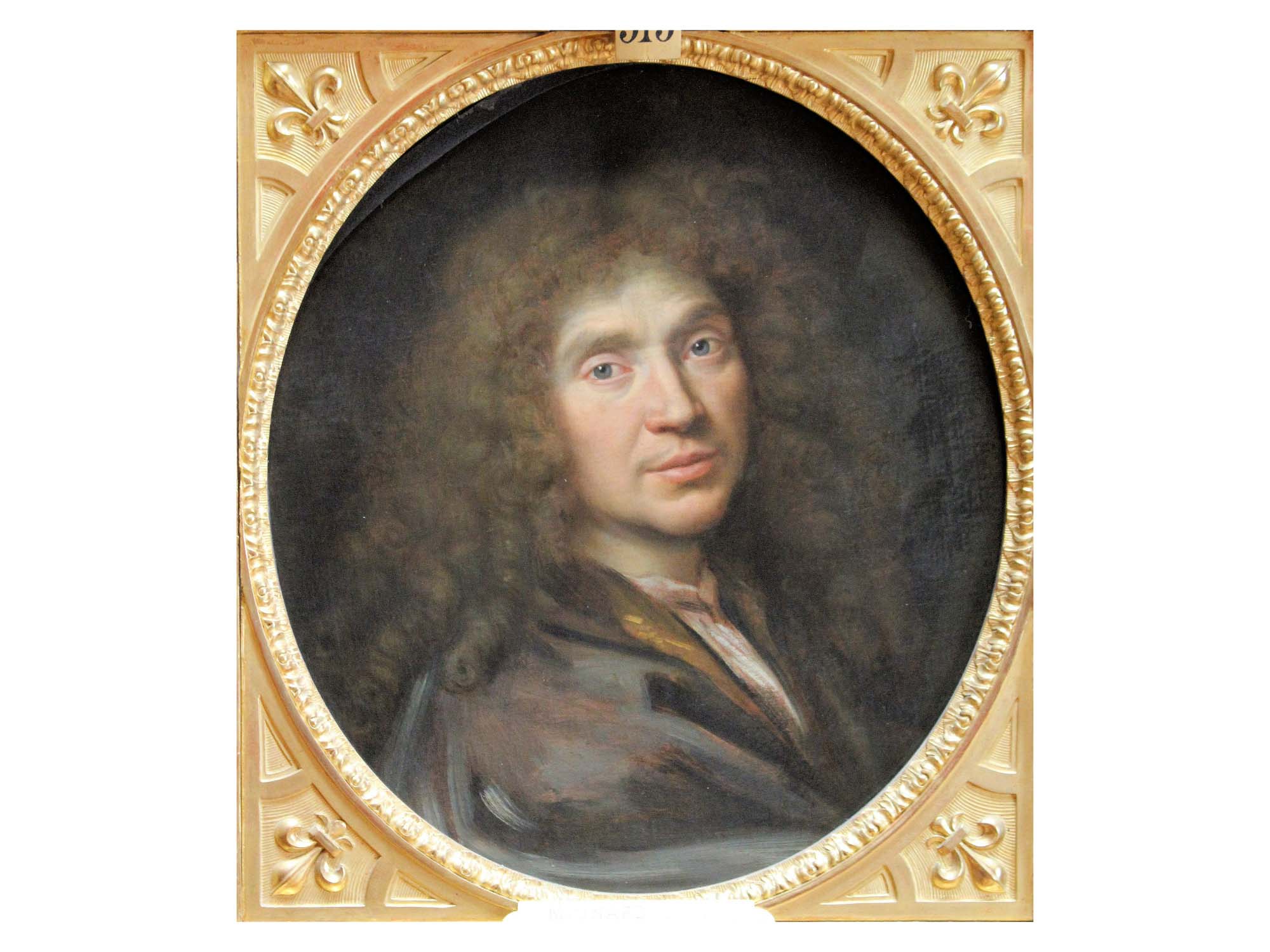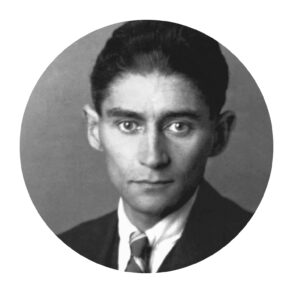Molière would have been 400 years old this year. Despite the four centuries that separate us from this genius of humor, his social criticism, his commitment to the human soul, his clairvoyance, and the trials he went through can still inspire us today.
Jean-Baptiste Poquelin came from a wealthy Parisian family and was born in January 1622 in the Les Halles district. Very early on, his grandfather regularly takes him to the Théâtre de Bourgogne, which is right next to their house and where the king’s actresses and actors play. He also experiences street plays that make passers-by laugh. Some say he studied philosophy, others law, perhaps in Clermont-Ferrant, but historians are not sure.
In The Beginning, There Was Love
Only love brings him to the stage when he meets the talented Madeleine Béjart, his first partner. They realize their dream together, and Jean-Baptiste invests the entire legacy of his mother to buy the later Illustre Théâtre in the middle of Paris. On this notarial deed, he signs for the first time with ‹Molière›. No one knows why he took this name or where it came from.
The Illustre Théâtre quickly went bankrupt, and Molière had to go to prison because he could not repay his debts. But he did not give up and went to the province to continue the adventure. For twelve years, he perfected his art by incorporating elements of the Italian Commedia dell’Arte and focusing on comedy, a style in which he excelled. Rudolf Steiner comments: «Molière’s comedy is, one might say, ‹comedy per se›, ‹comedy in itself›.»1 Molière also developed an unparalleled talent for writing. Each of his verses shows a perfect mastery, full of precision and freedom.
When he returned to Paris, he came under the protection of Louis XIV’s only brother. Through his mediation, he performed in front of the Sun King and made him laugh. After gaining his trust, he was gradually placed under the direct protection of the king. His troupe becomes the ‹king’s troupe›. Soon the Italian composer Lully will collaborate with him. In addition to the Dionysian element of theatre, there is the Apollonian element of music. The performances become comédie-ballets, in which musical and dance intermezzi loosen up the theatrical scenes. And the Sun King, who perfectly masters the art of dance, regularly appears as a dancer. The result was an artistic trio of three brilliant personalities: the actor, the musician, and the dancer.
Love Was In The Center
But Molière’s comic art is not just entertainment. It illuminates the deep forces of the human soul. His work forms a kind of textbook of psychology in artistic form. Such ‹clairvoyant› theatre sometimes triggers profound experiences in the audience and evokes a ‹catharsis›, an existential experience. It makes some laugh out loud but can also outrage others so much that it triggers a scandal. With ‹Le Tartuffe ou l’Imposteur›, in which the essence of hypocrisy is depicted through the tribulation of false piety, this phenomenon reached its climax. While the play pleased the king, a part of the court was outraged, and the piece had to be censored. It was the king himself who managed to get the censorship lifted after a year. In fact, Molière does not disturb either the high aristocracy or the common people, but the bourgeoisie. With each piece, a different part of society feels offended: the religious, the courtiers, the despotic fathers, the miserly, the seducers, or the doctors … But Molière doesn’t just criticize: he defends women, sincere love, and honest people, and either way, love will always be the Savior.

And speaking of love: the greatest play he staged for the king was the tragicomedy ‹Psyche›. The project is enormous. Gigantic backdrops and machines are built to make the characters fly – so ambitious that Molière has to enlist the services of another poet, Corneille. The play is based on the novel by Apuleius and tells the story of the young princess Psyche, whose beauty surpasses that of Aphrodite. Out of jealousy and indignation that a mortal is competing with her, Aphrodite condemns her to fall in love with an evil monster. She is taken to the brink of a terrible abyss to be surrendered to the creature. But it is Aphrodite’s own son, Eros (love), who falls in love with Psyche and takes the place of the monster: a rebellious love. Eventually, Psyche is deified by Jupiter and attains immortality. This story of the mortal soul, immortalized by union with love, is perhaps an imagination that runs secretly through Molière’s entire work.
In The End, There Was Love
In his last play, ‹The Imaginary Invalid›, Molière sends out a final message. It is regarding medicine. Is this just a critique of the medicine of its time, as is often claimed, or is there a more universal meaning hidden in it? Rudolf Steiner draws attention to the fact that materialism in its concrete form tends to create «imaginary invalids» who are obsessed with their physical bodies: «In our time, it is already a truth that perhaps we do not have a Molière who wrote the ‹imaginary invalid› because we needed too many Molières, because today there is a true enthusiasm of sickness in those people, have the time to be sick above all.»2 Thus, materialism gives tremendous power to medicine and pharmacists, and this phenomenon is certainly even more relevant today than it was in Molière’s time.
Molière experiences his last moments on stage as he plays the role of the imaginary invalid. He knows he’s sick, but doesn’t want to see a doctor and definitely wants to play because he knows his troupe has to perform to get paid and eat. He shows that his ideal and his devotion are above his own health. Unable to receive the sacraments of death and officially regret his life as an actor, as the Church demanded at the time, his body had to be thrown into a mass grave after his death. It was once again the king’s intervention that gave him a dignified grave, but the funeral had to take place at night, and the body had to be buried six feet underground, as the Christian Earth only reaches up to five feet deep. The genius disturbs – and the mediocrity of the bourgeoisie and the institutions cannot tolerate it.
Molière could show like no other that humor is a serious matter. Humor, in its own way, can indeed shed a spiritual light on human reality. Goethe had also recognized this in him: «I read some of Molière’s pieces every year, just as from time to time I looked at copper after the great Italian masters. Because we little people are not able to preserve the greatness of such things within us. We must therefore always return from time to time to refresh such impressions in us.»3
Picture Molière. Portrait of Pierre Mignard, Chateau de Chantilly. – Translation: Monika Werner CC-BY 4.0














Thank you for generously providing three free articles a month. Your choice of subjects are fascinating and provide a new perspective throough the eye of Anthroposophy. I look forward to each Newsletter and hope you will be able to continue to provide such enlightenment.
Thank you for this article. You wrote: “Molière also developed an unparalleled talent for writing. Each of his verses shows a perfect mastery, full of precision and freedom.” Actually his style was much criticized, La Bruyère and Fénelon condemned it. He was considered as not clear and natural enough. They nonetheless admired his inventivity, views and insights: his clairvoyance, as you and Steiner call it. My favourite is the Bourgeois gentilhomme, with ballets in it, a kind of secular fairytale-that is, without any supernatural. Its parody of initiation rituals is wonderful, and the folly of the main character, persisting even at the end, is terrible and funny in the same time. We can laugh about his delusions, about Luciferic thoughts of grandeur, nobility, mystic and exotic titles. All Europe history between the 15th and the 20th centuries, maybe.